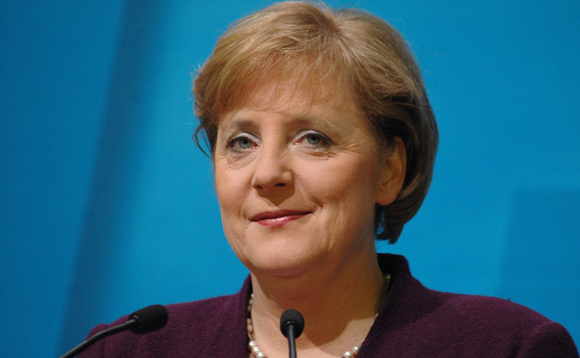
Germany: Some boom amid the doom and gloom

While Germany’s macroeconomic worries are being felt in the local private equity market, with deal volume continuing to slide, there are some bright spots emerging. Harriet Bailey reports
Are alarm bells ringing for the eurozone bulwark? While Germany is busy advocating prudence in the midst of a volatile macroeconomic environment – the country is likely to see a current account surplus of 7.9% of GDP this year in a bid to become debt neutral in 2015 – the need to provide the local economy with a powerful tonic might prove rather more pressing in the short term. German GDP contracted 0.2% in the second quarter after five quarters of growth, and the likelihood Q3 will also see diminishing returns is 30%.
This has knocked Germany's overall growth prospects for six – 0.6% to be precise – as October saw the Bundesfinanzministerium revise real GDP growth down to 1.2% for 2014 and 1.3% for 2015. A continued slump in both the ZEW Indicator for Economic Sentiment and the IFO Business Climate Index suggest the economic slowdown shows no sign of stopping. Is the pressure of propping up the eurozone finally proving too much for German investors?
The country's position as the growth centre of the EU is undoubtedly under threat. According to the BVK, private equity investments account for only 0.18% of national GDP, compared to 0.5% in the UK. Although the Mittelstand makes up 99.96% of all German companies and employs 70% of the country's workforce, private equity provides only 3% of its funding.
This is the context in which the year-long complaint about the perceived lack of viable investment opportunities sits. According to unquote" data, dealflow has dropped off by around one quarter. While 180 transactions were completed between January and September in 2013, raising €12bn, a paltry 132 deals worth €9bn took place during the same period this year. Is the sheer size of the Mittelstand harming private equity's growth prospects?
It is perhaps not surprising that Germany is seeing fewer deals. During the LP panel discussion at October's unquote" DACH Forum, the "push and pull factors" regarding investing in German funds were highlighted by speakers. Although both Mark Zünd, senior partner at Akina Partners, and Jim Strang, managing director at Hamilton Lane, commented on their preference for local fund managers to increase investment opportunities in the region, Zünd was also realistic: "Returns in German investments are typically lower than other transactions. The German market is in fourth place behind the Nordic region, the UK and Benelux, though ahead of France." It appears Germany needs to begin delivering the goods before investors head elsewhere.
On the exit front, too, things are lacklustre at best. The long-awaited IPOs of both online fashion retailer Zalando and its start-up accelerator parent Rocket Internet failed to create the rush to the Börse hoped for by many in the industry. Both ended up trading below their announced share prices and the hype around technology IPOs has since fizzled out.
Titans of technology
Nevertheless, technology is proving the most resilient sector, even if it has not provided an absolute cure for the asset class. Although 54 deals were completed between January and September, compared to 62 in the same period last year, 2014 saw €860m invested – almost double last year's €440m. And compared to the rest of Europe, the country is winning in the technology investment stakes. The UK completed five more deals than Germany's 21 in Q3, but its €200m total deal value came nowhere near the €380m invested in the Bundesrepublik.
Germany seems to be focusing on creating quality rather than quantity. While exits have not proven plentiful, at 52 deals in 2014 compared with 92 in the same period last year, the current crop has contributed €12.5bn to the country's coffers. The 2013 total was €14.5bn.
And there certainly seems to be hope for 2015. Germany's largest public pension fund, the Bayerische Versorgungskammer, recently stated its intention to double its allocation to private equity, while Angela Merkel, suggested her government was looking to increase its investment in the digital sphere.
Latest News
Stonehage Fleming raises USD 130m for largest fund to date, eyes 2024 programme
Sponsor acquired the public software group in July 2017 via the same-year vintage Partners Group Global Value 2017
Stonehage Fleming raises USD 130m for largest fund to date, eyes 2024 programme
Czech Republic-headquartered family office is targeting DACH and CEE region deals
Stonehage Fleming raises USD 130m for largest fund to date, eyes 2024 programme
Ex-Rocket Internet leader Bettina Curtze joins Swiss VC firm as partner and CFO
Stonehage Fleming raises USD 130m for largest fund to date, eyes 2024 programme
Estonia-registered VC could bolster LP base with fresh capital from funds-of-funds or pension funds









